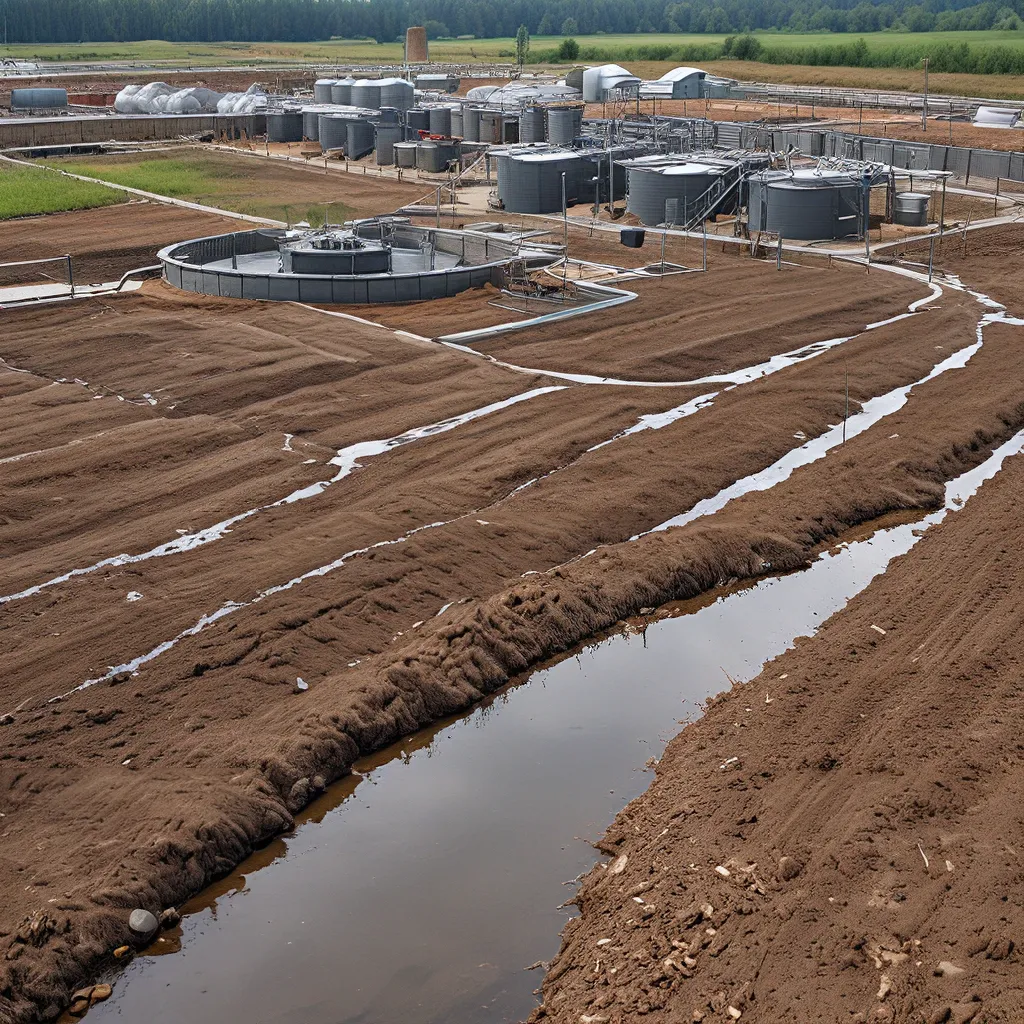
As someone who’s always been fascinated by the intersection of science, sustainability, and technology, I can’t help but geek out about the incredible potential of wastewater treatment and bioconversion processes. It’s like taking the leftovers from our daily lives and transforming them into something truly remarkable – bioproducts and bioenergy that can power our future.
Let me take you on a journey through this fascinating world, where we’ll dive into the science, explore the latest innovations, and uncover the vast, untapped opportunities that lie within our waste. Hold on tight, because this is going to be an eye-opening ride!
The Wastewater Conundrum: From Pollution to Potential
Picture a bustling city, where the flow of life is mirrored by the constant stream of wastewater. It’s easy to see this as a mere nuisance, something to be whisked away and forgotten. But if we shift our perspective, we can start to recognize the hidden treasure that lies within this seemingly ordinary liquid.
Wastewater is a veritable goldmine of organic compounds, nutrients, and even valuable metals. Rather than viewing it as a waste product to be disposed of, we can harness these resources through innovative treatment processes and bioconversion technologies. It’s a paradigm shift that’s already transforming the way we think about waste management.
The Science of Bioconversion: Harnessing the Power of Microbes
At the heart of this transformation is the science of bioconversion. It’s a process where microorganisms, such as bacteria and fungi, are enlisted to break down organic compounds in wastewater and convert them into a wide range of useful products.
These microbes are the unsung heroes of the wastewater treatment world. They possess an incredible ability to metabolize a vast array of organic materials, from fats and carbohydrates to cellulose and lignin. And as they do their work, they produce a treasure trove of valuable bioproducts, including biofuels, bioplastics, and even high-value chemicals.
It’s a process that’s not only environmentally friendly but also economically viable. By harnessing the power of these microscopic workhorses, we can reduce the environmental impact of wastewater while also generating revenue through the sale of these valuable bioproducts.
Unlocking the Potential: The Latest Innovations in Wastewater Bioconversion
The field of wastewater bioconversion is rapidly evolving, with researchers and engineers pushing the boundaries of what’s possible. Let’s explore some of the exciting innovations that are shaping the future of this industry.
Biofuels: Powering Our Future with Wastewater
One of the most promising applications of wastewater bioconversion is the production of biofuels. By utilizing the organic compounds in wastewater, we can cultivate microalgae and bacteria that can be converted into biodiesel, bioethanol, and even biohydrogen. This not only provides a clean, renewable energy source but also reduces our reliance on fossil fuels.
Recent studies have shown that the lipids and carbohydrates present in wastewater can be efficiently converted into biofuels, with the potential to meet a significant portion of our energy needs. And as the technology continues to evolve, we can expect to see even more impressive yields and efficiencies.
Bioplastics: Closing the Loop on Plastic Waste
Another exciting development in wastewater bioconversion is the production of bioplastics. By harnessing the microbial production of polyhydroxyalkanoates (PHAs), researchers have found a way to create biodegradable and renewable alternatives to traditional petroleum-based plastics.
These bioplastics can be used in a wide range of applications, from packaging and textiles to automotive and construction materials. And the best part? They can be recycled or composted at the end of their life, closing the loop on plastic waste.
Government initiatives are already underway to support the development and adoption of these sustainable materials, recognizing their potential to revolutionize the plastic industry.
Nutrient Recovery: Transforming Waste into Fertilizer
But the bioconversion potential of wastewater doesn’t stop there. Nutrients, such as nitrogen and phosphorus, are also present in wastewater and can be recovered and repurposed as fertilizers.
This not only reduces the environmental impact of wastewater discharge but also creates a valuable resource for agriculture. By harnessing these nutrients, we can close the loop on the nutrient cycle and contribute to a more sustainable food system.
Cutting-edge technologies are now being developed to efficiently extract and purify these nutrients, making them safe and suitable for agricultural use. It’s a win-win scenario that’s transforming the way we think about waste.
The Future of Wastewater Bioconversion: Endless Possibilities
As I delve deeper into the world of wastewater bioconversion, I can’t help but feel a sense of excitement and optimism. The potential of this field is truly staggering, and the opportunities for innovation and impact are endless.
Imagine a future where every drop of wastewater is seen as a valuable resource, where bioproducts and bioenergy are seamlessly integrated into our daily lives. It’s a future that’s not only sustainable but also economically viable, one that can transform the way we think about waste management and energy production.
And the best part? We’re just scratching the surface. As research continues to push the boundaries of what’s possible, I’m confident that we’ll see even more incredible breakthroughs and advancements in the years to come.
So, if you’re like me and you’re fascinated by the intersection of science, sustainability, and technology, I encourage you to explore the world of wastewater bioconversion. It’s a rabbit hole that’s well worth diving into, and who knows what amazing discoveries you might uncover. After all, the future of our planet just might be hiding in those seemingly ordinary drops of wastewater.
And if you’re interested in learning more about how Alpha Wastewater is leading the charge in this exciting field, be sure to check out their website. They’re at the forefront of the wastewater treatment revolution, and I have a feeling you’re going to be hearing a lot more from them in the years to come.